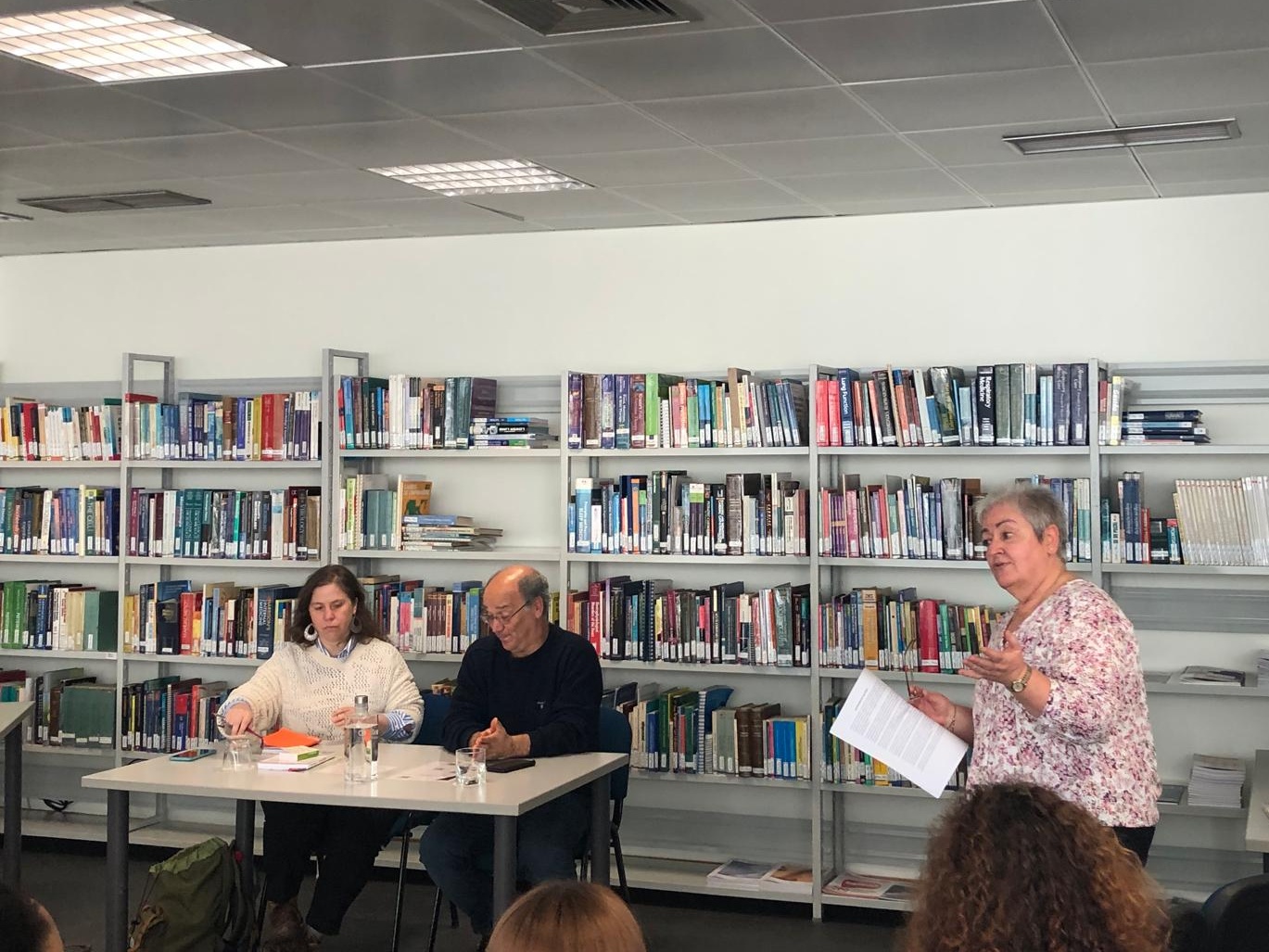EntreLinhas Reading Club joins ESTeSL for a conversation about freedom of expression
On April 23, “The importance of literacy in higher education and freedom of expression” was the theme of the 3rd session of the EntreLinhas Reading Club, of the School of Communication and Media Studies (ESCS-IPL), which took place in the library of the Lisbon School of Health Technology (ESTeSL-IPL), the entity responsible for the initiative.
The meeting was part of the celebration of World Book Day, and the guest speaker was Paulo Jorge Pereira, journalist, currently media advisor of the Livre party, and author of Filho da Pide.
Twenty students and teachers from ESTeSL and ESCS joined the conversation.
For more than two hours, guest and participants exchanged ideas about the impact of social networks and algorithms on how citizens think and behave, and about the values and attitudes that contribute to a healthy dialogue.
Paulo Pereira began by talking about his first books, Filhos da Primavera Árabe and Murro no Estômago. He suggested a political reading of various issues of social justice and current affairs, namely migration and domestic violence, emphasizing the value of freedom that came with the Revolution of April 25, 1974, celebrated two days after that meeting.
The students, challenged to relate these themes to freedom of expression, commented on the need to regulate communication on social networks and the importance of encouraging critical thinking from an early age, for example with philosophy classes for children, as suggested by one student.
Reading habits and the having sense of belonging were also cited as relevant aspects, in a debate in which polarization was an inevitable issue.
In this regard, there was a debate on how spaces for dialogue that respect divergent opinions can be created. During the session itself, different perspectives on the subject were expressed, making it clear that there is no clear or consensual “recipe”, and that it would be beneficial to have time to deepen these reflections.
At the end, each participant expressed what had impacted them most during the afternoon. Among the responses, the importance of “memory”, “empathy”, “good stories” and “doubting beliefs” emerged, and – more than once – the word “hope”.
This session was organized by Professor Ana Monteiro, from ESTeSL, with the support of Maria dos Anjos Antunes, head of the library. The conversation was mediated by Margarida Alpuim, project assistant at ESCS-IPL UNESCO Chair in Communication, Media and Information Literacy and Citizenship, which includes the EntreLinhas Reading Club.

